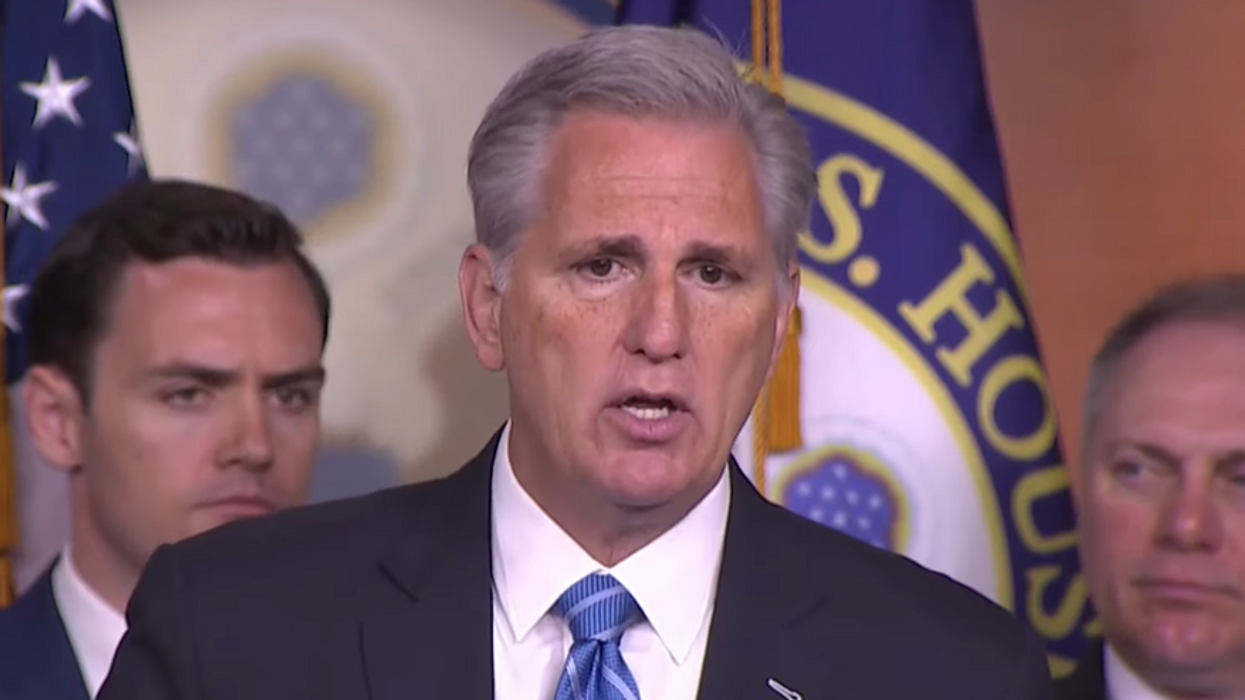Polling expert explains the real reason the GOP doesn't care that it's unpopular


Although President Joe Biden entered 2022 suffering from weak approval ratings, many polls have shown that Democratic positions are more mainstream than Republican positions. Most voters, according to polls, are against overturning Roe v. Wade or abolishing Obamacare — which is enjoying record enrollment. Yet Republicans have a very good chance of retaking the U.S. House of Representatives as well as the U.S. Senate in the 2022 midterms, and American Enterprise Institute researcher Daniel Cox offers some reasons why in an article published by FiveThirtyEight this week.
“Despite the fact that the GOP is quite unpopular and that much of its current agenda — such as overturning the Affordable Care Act or advancing restrictive immigration policies — does not appeal to a majority of voters, the party is in an enviable position heading into the 2022 midterm elections and beyond,” Cox writes. “What is to make of this glaring disconnect?.... The biggest reason why the GOP may not be pushing more popular policies is that recent history suggests it’s unnecessary.”
Cox continues, “Former President Trump’s startling 2016 election victory showed that an unpopular candidate with little interest in public policy can still win. For conservative activists disappointed in the outcomes of (Mitt) Romney and the late Sen. John McCain’s campaigns, the lesson of 2016 was that political candidates with personal baggage or extreme political views are no longer a liability.”
In the past, Republicans and Democrats had vigorous policy debates and “fought like cats and dogs” — to quote “Real Time” host Bill Maher — but managed to find common ground at times and pass bipartisan legislation. Biden has a long history of bragging about his ability to get things done with McCain, Sen. Bob Dole of Kansas or President George H.W. Bush; President Ronald Reagan and Democratic House Speaker Tip O’Neill had plenty of policy differences during the 1980s but clearly viewed one another as the loyal opposition rather than bitter enemies.
Trump, in contrast, ran a rally-the-base campaign in 2020 and showed outright contempt for Democratic voters.
Many Trumpian Republicans, according to Cox, see no benefit in reaching out to the center.
“The current structure of the Electoral College and the U.S. Senate also allows Republican candidates wider discretion in eschewing popular legislation,” Cox explains. “For instance, former FiveThirtyEight reporter Perry Bacon, Jr. argued last March that the GOP’s structural advantages over the Democratic Party has allowed legislators to pursue more conservative policies than the average voter prefers.”
Cox goes on to cite some reasons why Trumpified Republicans take unpopular positions.
“There are several reasons to think that opposing popular policies won’t hurt Republicans electorally, and conversely, that implementing a popular agenda won’t necessarily boost Biden that much,” Cox notes. “The first reason that congressional Republicans can afford to oppose popular ideas is one that you have probably read a lot about over the last several years: The GOP has several big structural advantages in America’s electoral system…. Second, electoral politics and policy are increasingly disconnected…. Third, the last several midterm elections have all been defined by backlashes against the incumbent president…. Fourth, voters may like a president’s policies in the abstract but still think he isn’t doing a good job or that his policies aren’t that effective if those policies aren’t bipartisan.”
Moreover, Cox adds, swing voters “may not swing to the party with the most popular policies.”
According to Will Stancil, who works at the University of Minnesota’s Institute on Metropolitan Opportunity, one thing many liberals fail to understand is that politics in the U.S. are often driven by tribalism and raw emotion rather than a concern with policies.
Stancil told FiveThirtyEight, “If liberals were right about how politics worked, Donald Trump should never have been possible, and his party should have suffered crushing, generational defeats in the wake of his election, especially last November…. Politics is as much irrational, emotive factionalism as anything else, but liberals only seem capable of understanding it as an orderly marketplace of ideas and will contort themselves in pretzels to preserve the fiction that voters’ commitments are rational and mechanical.”